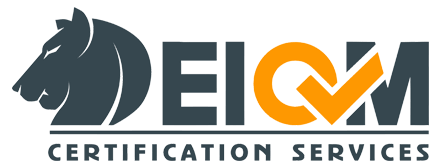ISO 27001 is an international standard that sets out the criteria for establishing, implementing, maintaining, and continually improving an information security management system (ISMS)

EIQM Cert
Certification Services
ISO 27001 is an international standard that sets out the criteria for establishing, implementing, maintaining, and continually improving an information security management system (ISMS)
ISO 21500 highlights the significance of risk management in project execution. It encourages organizations to identify, assess, and mitigate risks throughout the project lifecycle to minimize the impact of potential issues.
ISO 21001 is a standard developed by the International Organization for Standardization (ISO) specifically for educational organizations, including schools, colleges, universities, and training centers. It provides a framework for establishing, implementing, maintaining, and improving an educational management system (EMS).
ISO 17025 is a globally recognized standard that specifies the general requirements for the competence, impartiality, and consistent operation of testing and calibration laboratories.
ISO 13485 is an internationally recognized standard specifically designed for organizations involved in the design, development, production, installation, and servicing of medical devices.
ISO 10015 is an international standard developed by the ISO Technical Committee on Quality Management and Quality Assurance. It provides guidelines for training organizations to establish, implement, maintain, and improve their training processes.
FSSC 22000 stands for Food Safety System Certification 22000. It is a robust and comprehensive certification scheme that combines elements of ISO 22000 (food safety management) and technical specifications for prerequisite programs (PRPs) like ISO/TS 22002-1 and additional requirements.
GMP certification is crucial for businesses in regulated industries, as it ensures that products are safe, effective, and meet the quality standards expected by consumers and regulatory authorities. It helps build trust and confidence among consumers.
Halal certification is crucial for both producers and consumers. In today’s multicultural society, the demand for halal-certified products has significantly increased. Halal is an Arabic term that translates to “permissible” and refers to food and other items that are prepared and produced according to Islamic dietary laws.
CE certification is a product export mark that indicates compliance with European Union (EU) legislation regarding health, safety, and environmental standards.